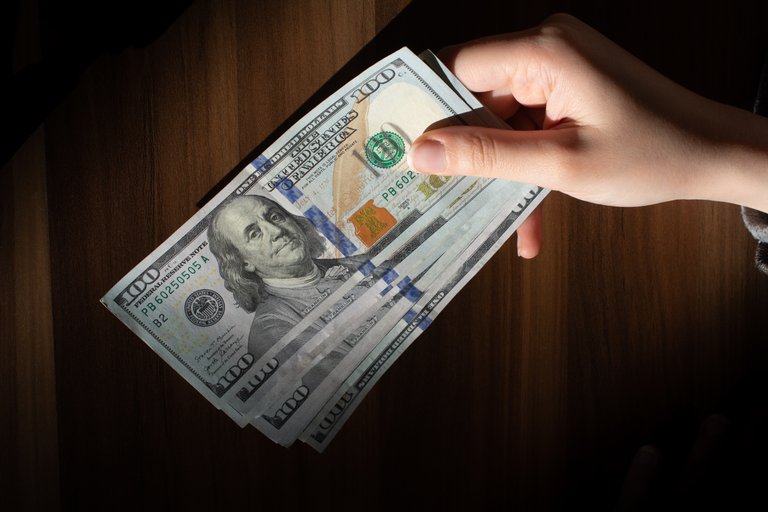The Cost of Greed: Prioritizing Profit Over Well-Being
Given enough time, a blue ocean may eventually turn into a red ocean, where sharks are biting off each other just to get by.
One of the perks of a first mover advantage is the opportunity to monopolize a market through securing a big market share.
But this comes with its own set of problems, as all eyes are on the big guy, poking at him with every chance they get.
In an age of technology, markets have become more dynamic. In a sense that, they're constantly changing and evolving. This means that monopolies can be made from businesses that are great at adapting to the changing times.
Whether blue ocean, where whales freely roam the sea or red ocean, where sharks are fighting over a small territory, greed is a powerful force that can drive businesses to prioritize profit over well-being.
Profit is the ultimate goal of any business, but should it come at the expense of the well-being of its workers, customers, or even the environment?
The Concept of Well-being
I used to watch an interesting show on France 24 titled 'People & Profit'. The show is based on the idea that people and profit are interconnected in the global economy , and it explores how business decisions and market trends affect the lives of many many people around the world.
The concept of well-being is not easy to define, as it can vary depending on the context and perspective. However, a common way to approach it is to consider the three dimensions of well-being: physical, mental, and social.
Arguably, physical and mental(with emotional) well-being form the core foundation of every individual. And if either of the two becomes destabilized, then all kinds of problems may ensue. Such as stress or lack of energy.
Apart from the health industry, healthy people are good for business. Because they have a higher capability to contribute to the economic productivity of an economy.
But when greed comes into the picture, it seems logic flys out of the window. And it seems the reverse begins to happen, i.e businesses disregarding the well-being of their workers or customers, in order to increase their profits, even if it means causing them harm in the process.
The Effects Of Greed On Well-being
One of the consequences of greed is that businesses may resort to unethical or illegal practices to increase their profits.
For example, some businesses may resort to using sweatshops, which has become a growing concern amongst human rights organizations.
Essentially, sweatshops are workplaces where workers are hired for low wages and under unhealthy or oppressive conditions. Often found in developing countries, because these are places where labor laws are weak, unenforced or practically non existent.
According to Eco Freindly Habits, sweatshops produce most of our everyday products, especially those in fashion and design category.
In this part of the world, some businesses have no issue selling defective, counterfeit, or harmful products to unsuspecting consumers, which could endanger their health and safety.
In one of the episodes of the 'People & Profit' show on France 24, it exposes how some pharmaceutical companies are selling fake or substandard drugs in Africa, putting millions of lives at risk.
Seen from another viewpoint, these businesses operate in tough industries with fierce competition. So when their backs are against the wall, they are willing to do anything to survive and thrive in the market, even if it means sacrificing the well-being of others.
However, this short-term strategy always backfire in the long run. Because it is simply unsustainable. Also, they may eventually face legal actions, public backlash, or loss of reputation.
This was the case for one of the pharmaceutical companies that sold substandard drugs, it faced legal action and the owners got thrown into jail.
In Closing
The dilemma that some of these businesses face is whether to pursue their profit maximization at the expense of their and others well-being, or to balance their profit motives with their ethical and social responsibilities.
This dilemma itself is not new, but it has become more acute in the age of technology, where markets are more dynamic and competitive.
Those that are driven by greed may resort to unethical practices to gain an edge over their rivals. But these practices mentioned above tend to have negative effects on the well-being of themselves(i.e businesses) and others, as well as on the environment.
Perhaps, a fitting analogy for this dilemma is the story of the scorpion and the frog. The scorpion wants the frog to carry him across a river. At first, the frog hesitates, afraid of being stung by the scorpion.
But the deceptive scorpion argues that if he stings the frog, they would both drown. So the frog agrees and lets the scorpion climb on his back.
Halfway across the river, the scorpion stings the frog anyway, dooming them both. When the frog asks why, the scorpion replies: “It’s in my nature.”
Is it in the nature of businesses to be greedy, even if it means harming themselves and others?
Thanks for reading!! Share your thoughts below on the comments.



Yay! 🤗
Your content has been boosted with Ecency Points, by @takhar.
Use Ecency daily to boost your growth on platform!
Support Ecency
Vote for new Proposal
Delegate HP and earn more
Wow this is an amazing article. It exposes the nuances of businesses and it's ethics. Profit over well-being is an issue that should be taken up strongly. Without well-being, there would be no profit.
Right. Profit starts to diminish if there's no sustainable well-being in place. Business ethics is something that's been put more into test in the age of technology. People can do whatever when their back is seemingly against the wall.
Thanks for stopping by :)
It was a pleasure